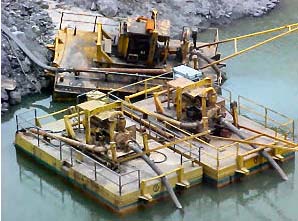
Image courtesy: Jharkhand State Industrial Development Corporation
The Jharkhand industrial policy (draft) 2011 has been formulated with the basic objective of optimally utilizing the available resources in planned and systematic manner for the industrialization of the state. It is aimed at enhancing value addition of the natural and human resources in an efficient manner to generate additional employment and resources for growth and development of the state.
Industrialization has contributed to the revenue collection of the state besides improving the quality of life in certain pockets like Jamshedpur-Saraikela-Chaibasa, Ramgarh-Patratu-Hazaribagh, Latehar-Chandwa, Ranchi-Lohardaga, Bokaro-Chandankiyari-Dhanbad-Giridih etc.
The policy makes the following points on water –
- The state has normal rainfall pattern of 1400 mm spread across all the regions and possesses a large number of water bodies, reservoir and river basins spread across the state, which is available for industrial use. It is proposed to carry out a fresh survey to ascertain the actual availability of water.
- Efforts will be made to impress on investors to implement appropriate measures for rational use of this scarce resource and the need for adoption of minimum water consumption technologies, recycling of water after use in industries and treatment of waste water.
- Efforts will be made to prepare water supply schemes. Feasibility of desalination plants and supply of recycled and treated waste water to industries will be explored. Government will try to implement and facilitate mega water supply schemes for industries at specific locations through Special Purpose Vehicle (SPV).
- Concept of differential water tariff is being introduced:
- Lower tariff for industries minimizing the industrial water consumption to the extent possible and also to the extent possible and also to industries devising means or methods to use flood water for its consumption.
- Higher tariff for industries using water more than the specified average norm.
- Differential water tariff is also being introduced with respect to the source of allocation (natural river source) of allocation (natural river source, government owned storages, canals etc) and also whether water is being consumed as raw material.
- Many mega industries have been allocated water by Water Resources Department (WRD) for their proposed plant in Jharkhand. Some of these units are yet to make substantial progress in installation which could justify the quantum of water allocated to them. Steps have been initiated to reduce the quantity of allocated water to such industries keeping in view their actual requirement in near future and allotment of balance quantity to such mega units where substantial progress has been made in installation of the plant.
- Rainwater harvesting shall remain mandatory for industries. Industrial Area Development Authority under their command area will ensure its implementation.
- Groundwater is not to be used for industrial purposes.
- Storage intervention by industrial units will be encouraged to meet the industrial water demand during non-monsoon period.
- Industrial units will be required to adhere to the discharge norm fixed by Jharkhand State Pollution Control Board (JSPCB).
- Water policy detailing availability of water in the river basin, water allocation to different consuming sectors, priority areas for allocation etc is being worked out by WRD and will be published shortly.
Download the policy below -





 Jharkhand_Industrial_Policy_Draft_Sections_on_water_2011.pdf
Jharkhand_Industrial_Policy_Draft_Sections_on_water_2011.pdf







